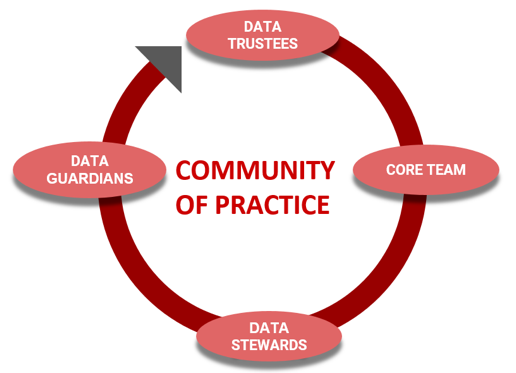What is Data Governance?
Data Governance is a collection of practices and processes which helps to ensure the formal management of data assets within an organization. Data Governance often includes concepts such as Data Stewardship, Data Quality, and others to help an enterprise gain better control over its data assets, including methods, technologies, and behaviors around the proper management of data. It also deals with security and privacy, integrity, usability, integration, compliance, availability, roles and responsibilities, and overall management of the internal and external data flows within an organization.
From Dataversity

Arcadia University (“University,” “Arcadia”) administrative and academic data are valuable institutional assets. A data governance program ensures the formal management of data within the University through the use of clear practices and processes to support decision-making and informed action.
Guiding Principles
- University data are valuable assets that have value and should be managed and protected accordingly.
- Data Governance activities will support evolution toward a culture of shared data and resources.
- All members of the campus community are responsible for supporting data governance. This includes not only individuals with roles defined by Arcadia’s Data Governance Program but also campus data users.
- The processes using, and decisions made with, University data should be ethical, efficient, purposeful, documented, clear, consistent, metrics-driven, aligned to institutional priorities and needs, and regularly reviewed and communicated.
- University data should be used in compliance with legal, regulatory, and contractual obligations.
- Data Governance Program activities should support a cycle of continuous improvement that includes following an annual plan, assessment, analysis, and planning for program improvements.
- To submit a general data inquiry, please let us know.
- To submit a general data inquiry, please let us know.


